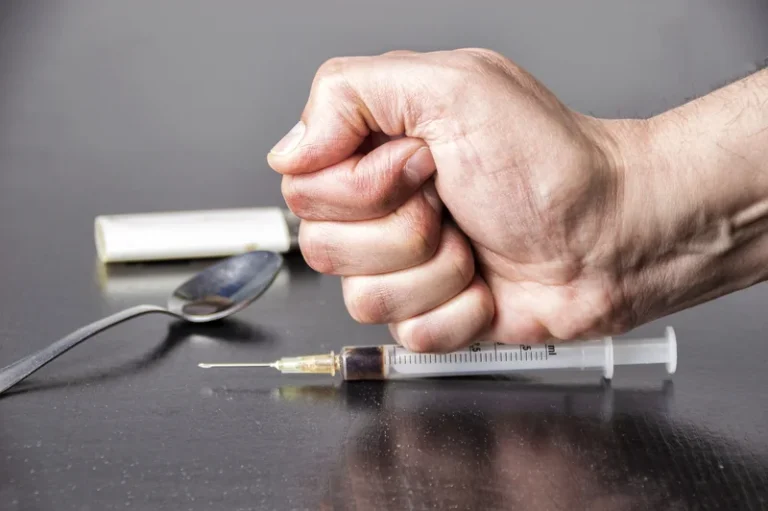
By following a good sleep hygiene routine, you can improve your sleep and possibly your memory, too. We also know that sleep plays an important role in memory, and good sleep appears to be essential for memory consolidation and processing. For example, in one study from 2022, researchers investigated the link between PTSD diagnoses and symptom severity and the ability to remember everyday activities.
Improve Your Sleep
During talk therapy, you may also learn ways to relax, such as when you start to have flashbacks. Your provider may also do a mental health exam, physical exam, and blood tests. These are done to look for other illnesses that are similar to PTSD. The stress hormones and chemicals the body https://ecosoberhouse.com/ releases due to the stress go back to normal levels. For some reason in a person with PTSD, the body keeps releasing the stress hormones and chemicals. You may be able to manage brain fog with some lifestyle interventions like dietary changes, consistent sleep, and regular exercise.
- This may involve connecting with trusted friends and family members, joining support groups, or engaging with online communities of individuals with similar experiences.
- By adopting a holistic approach to mental health and well-being, it is possible to navigate the complex terrain of trauma and memory while working towards healing and recovery.
- Memory deficits appear to be most related to abnormalities in the hippocampus and hypothalamic-pituitary-adrenal (HPA) axis, and the prefrontal cortex and catecholamine system.
- People often primarily view anger as a negative or harmful emotion.
- Many people report feeling as though they’ve “woken up” in a different place or situation, with no recollection of how they got there.
- But it can also be a destructive force that can lead to damage to individuals and to others.
How do you fix PTSD-related memory loss?
Not to mention, they can put you in danger of serious harm in the moment when you’re not quite sure of your surroundings or what’s happening. If you know someone who may be experiencing PTSD, the most important thing you can do is to help that person get the right diagnosis and treatment. Some people may need help making an appointment with their health care provider; others may benefit from having someone accompany them to their health care visits. Learn more about how to help children and adolescents cope with disasters and other traumatic events.
Emotional freedom technique (EFT)

Older children and teens usually show symptoms more like those seen in adults. They also may develop disruptive, disrespectful, or destructive behaviors. Older children and teens may feel guilty for not preventing injury or deaths. Thoughts and feelings can trigger these symptoms, as can words, objects, or situations that are reminders of the event. Flashbacks and dissociation may feel unpredictable and uncontrollable.
- Fortunately, there are treatments that can help you cope with PTSD and learn more deal with your anger more effectively.
- A 2020 meta-analysis also found that a diagnosis of PTSD resulted in an increased risk of developing dementia ― around 1.6 times for veterans, and 1.9 times for the general population.
- For individuals grappling with the possibility of repressed memories or struggling with PTSD symptoms, developing effective coping strategies is crucial.
It is likely that memory dysfunction is both a pre-existing risk factor for the development of PTSD as well as s a consequence of the disorder. Regardless of the origin of memory deficits, their effects on daily functioning and treatment, are of primary concern. Memory problems reduce the resources available to PTSD patients when ) coping with life’s demands and more specifically, can impact patients’ ability to engage in and respond to psychological treatment. The relationship between ptsd blackouts repressed memories and Post-Traumatic Stress Disorder (PTSD) is a complex and often misunderstood aspect of trauma psychology. PTSD is a mental health condition that can develop after exposure to a traumatic event, characterized by symptoms such as intrusive thoughts, nightmares, hypervigilance, and avoidance behaviors. While not all individuals who experience trauma will develop PTSD, those who do often struggle with vivid and distressing memories of the traumatic event.
- By Ethan Milner, LMSW The term “Neurodiversity” includes a spectrum of presentations including Autism and ADHD.
- Many people have all three of the anger problem areas listed above.
- So, how do you sort through your feelings and bring closure to the past?
- This process is not always straightforward, as memories can be influenced by various factors, including emotional state, context, and the passage of time.
- These memories, though seemingly forgotten, are believed to continue exerting influence on an individual’s thoughts, emotions, and behaviors.
- The psychiatrist and therapist will work together during your treatment.
Post-Traumatic Stress Disorder (PTSD)

While there is no specific medication for PTSD blackouts, certain antidepressants and anti-anxiety medications can help manage overall PTSD symptoms, potentially reducing the likelihood of blackout episodes. It’s crucial to work closely with a mental health professional to determine the most appropriate medication regimen, as individual responses can vary. Addressing PTSD blackouts requires a comprehensive approach that targets both the underlying trauma and the specific symptoms of dissociation and memory loss. During talk therapy, you talk with a mental health professional, such as a psychiatrist or therapist, in a calm and accepting setting. They will also guide you as you work through your feelings about the trauma. After experiencing trauma, people frequently experience a variety of symptoms, including intrusive thoughts, hypervigilance, irritability, hostility, avoidance, anxiety, and depression.
Psychotherapy can provide support, education, and guidance to people with PTSD and their families. Treatment can take place one on one or in a group and usually lasts 6 to 12 weeks but can last longer. For example, some people may feel detached from the experience, as though they are observing things rather than experiencing them. A mental health professional who has experience helping people with PTSD, such as a psychiatrist, psychologist, or clinical social worker, can determine whether symptoms meet the criteria for PTSD. Post-traumatic stress disorder, aka PTSD, is a serious mental health condition once attributed only to post-war veterans.

How Can Anger After a Trauma Become a Problem?
- Should you require more information and resources, click here to get in touch with us at Aura Institute.
- Trauma-related nervous system effects are amplified in complex post-traumatic stress disorder (CPTSD).
- The hypothalamus and pituitary gland both send out a rush of stress hormones, preparing us to fight, flee, or freeze.
- If you’re living with the aftereffects of trauma, you might notice a slow, sluggish mental state known as brain fog getting in the way of your personal or work life.
- It is crucial to note that memory recovery therapies carry significant risks and ethical considerations.
- Reach out to people you trust who will understand and support your feelings.